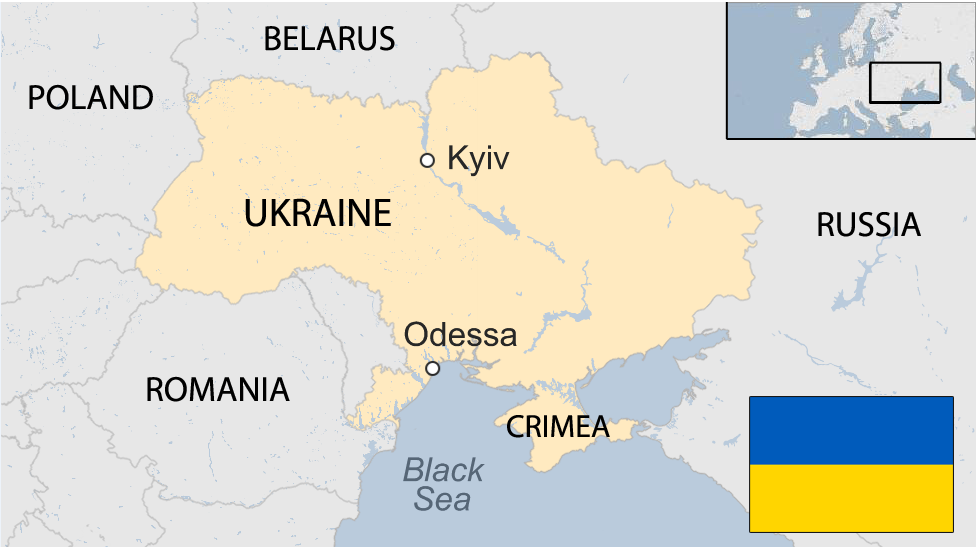Russia awash with symbols of WW2 victory
- Published
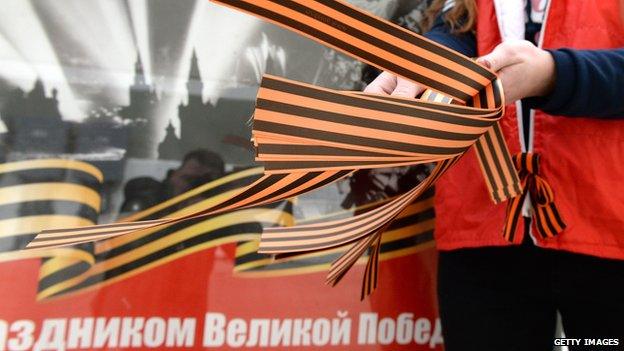
St George's ribbons are the most popular symbol of the Soviet victory in what Russians call the Great Patriotic War
Russia is gripped by memories of World War Two on the eve of Victory Day, marking 70 years since Soviet forces and their Western allies defeated Nazi Germany.
Hundreds of thousands of Russians are proudly sporting symbols which honour war veterans and hail their country's military might.
But some of the displays have proved controversial, while others have prompted accusations of trivialising the memory of one of the greatest sacrifices in human history.
There are also fears that war memories are being exploited to justify Russian belligerence towards Ukraine and the West.
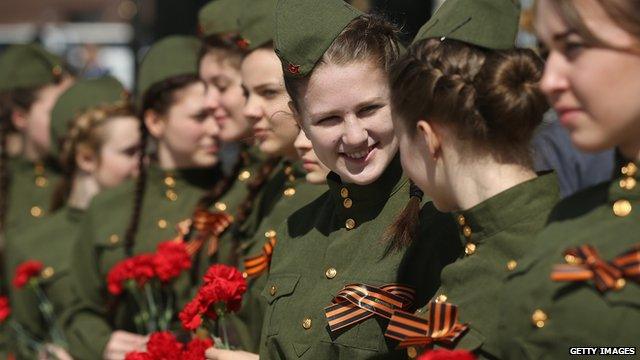
Schoolgirls wear historical uniforms as Moscow prepares for a massive military parade on Victory Day, 9 May
The St George's ribbon is by far the most popular symbol of victory displayed by Russians. It represents military valour, and was previously used with medals in Tsarist Russia and the Soviet Union. It only came into widespread use in 2005 - apparently in reaction to orange ribbons which pro-democracy demonstrators in Ukraine had adopted as their symbol.
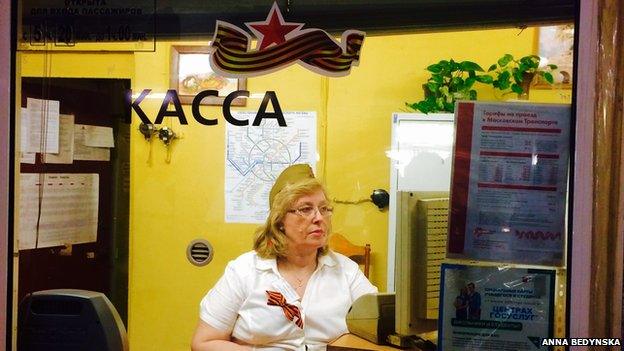
Some cashiers at the Moscow underground are wearing St George's ribbons and distinctive war-time caps
Motorists in Russia put the ribbons on their cars, and women tie them to their handbags. They are also widely used on products, ranging from shoes and sofas to packs of frozen food and bottles of vodka. In Moscow, a grooming salon even offered to paint St George's ribbons on dogs' backsides, external.
The ribbons' ubiquity and use in the unlikeliest of places has provoked a backlash from those who think it insults the memory of war veterans. Several MPs have urged restrictions. "You can't touch religious symbols, you can't put them on consumer goods," said Vladimir Zhirinovsky, a prominent nationalist MP.

The ribbons have now been elevated to almost religious status in Russia: here they are being consecrated by the top Orthodox clergyman in Yaroslavl, north of Moscow
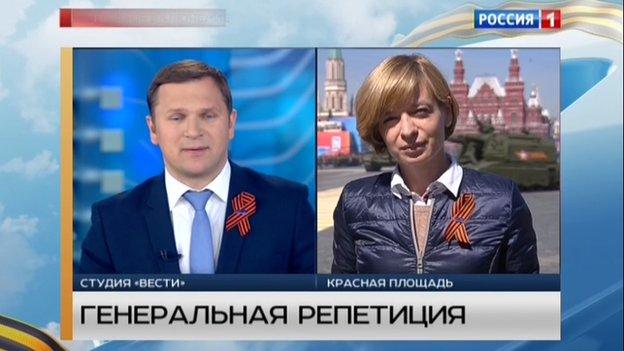
State TV uses World War Two imagery to assert Russia's might and mark its resurgence
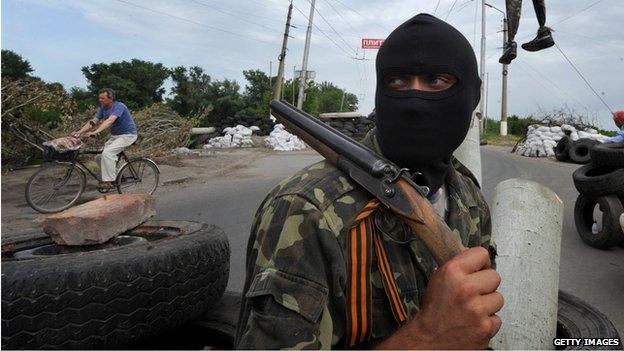
The St George's ribbon is worn by pro-Russian separatist militants in eastern Ukraine

Russia's Great Patriotic War 1941-1945
22 June 1941: Nazi German troops invade Soviet Union, despite 1939 non-aggression pact (known as Molotov-Ribbentrop pact)
Winter of 1942-43: Germany's relentless advance blocked at Stalingrad, south Russia - around two million soldiers and civilians die in long battle
1944: Soviet offensive spreads across Eastern Europe as German troops retreat
21 April 1945: Soviet troops enter Berlin
30 April 1945: Hitler commits suicide
More than 60 million war dead globally - heaviest losses were Soviet, an estimated 26 million

Some World War Two remembrance displays have caused controversy. Particularly contentious is the use of portraits of Joseph Stalin, as rights activists argue that he was responsible for the deaths of millions of Russians, and other Soviet nationalities.
One portrait shows the Soviet wartime leader offering Victory Day greetings from huge billboards, external in the southern town of Mineralnye Vody.
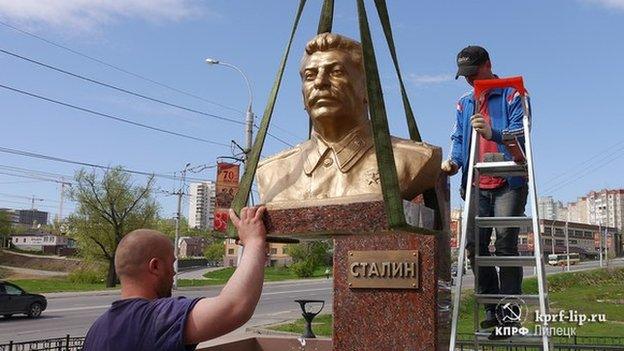
A monument to Stalin has been erected by the Communist Party in Lipetsk, southwestern Russia
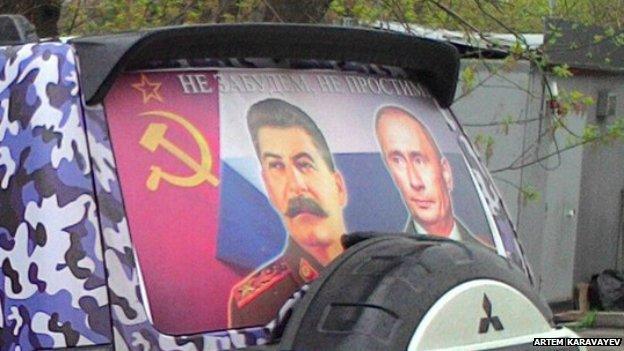
"We won't forgive, we won't forget" says the caption on this car sticker showing Stalin alongside Russia's President Putin

"Stalin is victory" says the inscription on a bus in St Petersburg
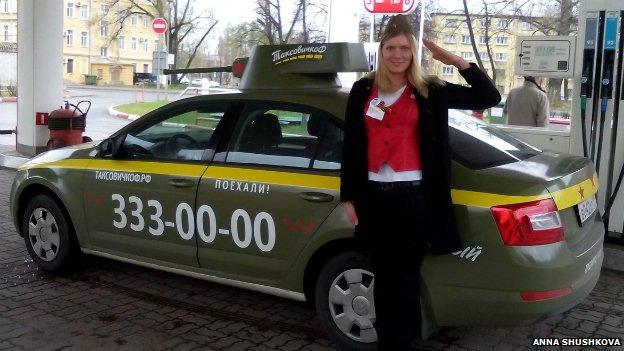
To mark the war anniversary, a taxi company in St Petersburg has put plastic "tank turrets" on its cars
In Kaluga, central Russia, a banner, external threatened that Rome would be next for annexation after Crimea - the two names rhyme in Russian. It also listed the recent battle of Ilovaysk in Ukraine among the major victories scored by the Russian military over the centuries. Yet the Kremlin insists that no Russian regular troops are involved in the Ukraine crisis.
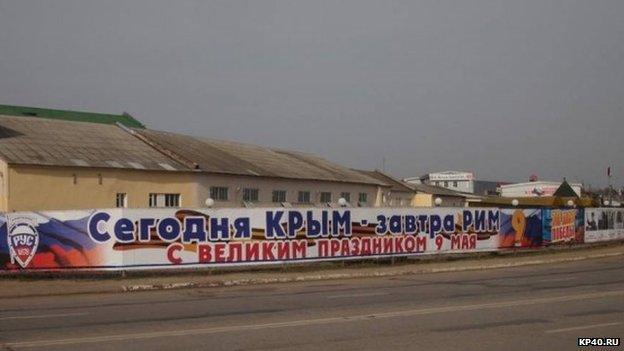
"Crimea today, Rome tomorrow", says this banner in Kaluga
Inmates at a St Petersburg prison were made to line up and form lines spelling Victory Day messages seen from the air, external. To mark the war anniversary, seals in a zoo in the Siberian city of Irkutsk were made to wear paratroopers' caps and swim with toy guns, external.
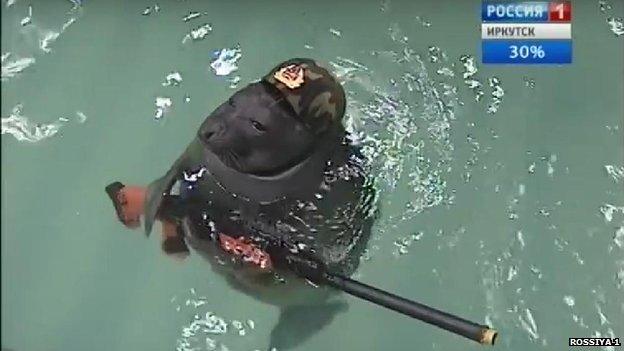
Seals performed a "military-patriotic show" at a zoo in Irkutsk
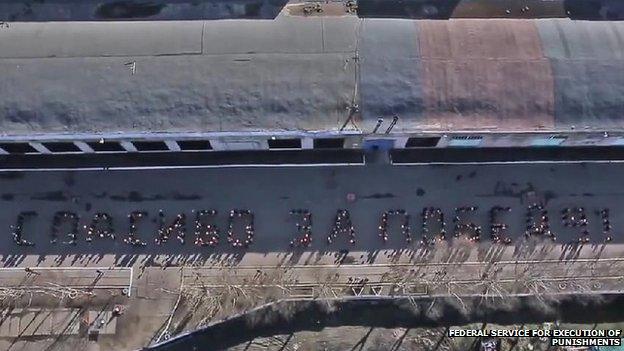
Prisoners in St Petersburg formed a message saying "Thank you for the victory!"
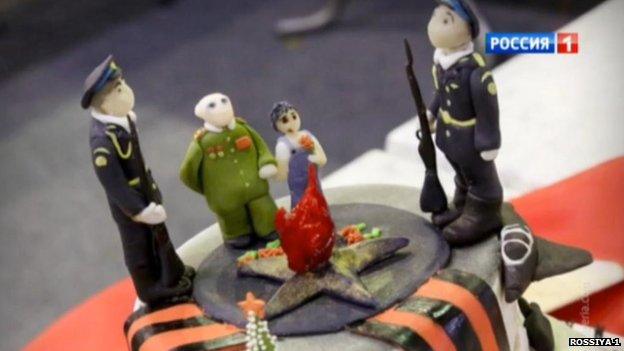
A victory-themed bake-off was held in Siberia, but state TV said it was "sacrilegious and offensive"
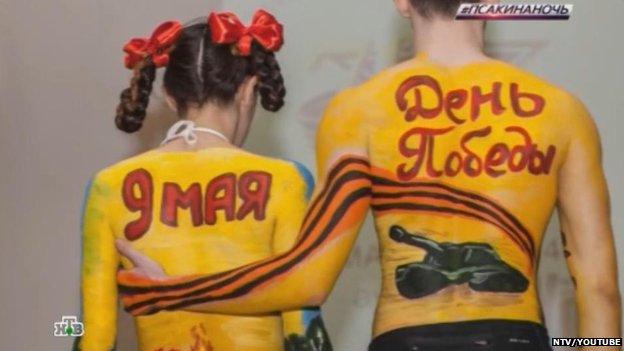
The Great Victory was even celebrated at a body-art contest in Izhevsk
BBC Monitoring, external reports and analyses news from TV, radio, web and print media around the world. For more reports from BBC Monitoring, click here. You can follow BBC Monitoring on Twitter, external and Facebook, external.
- Published5 May 2015
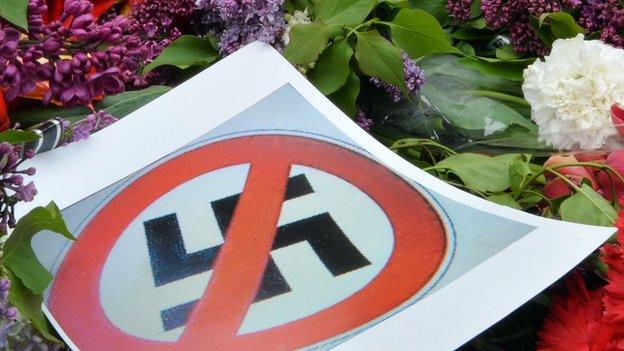
- Published27 January
